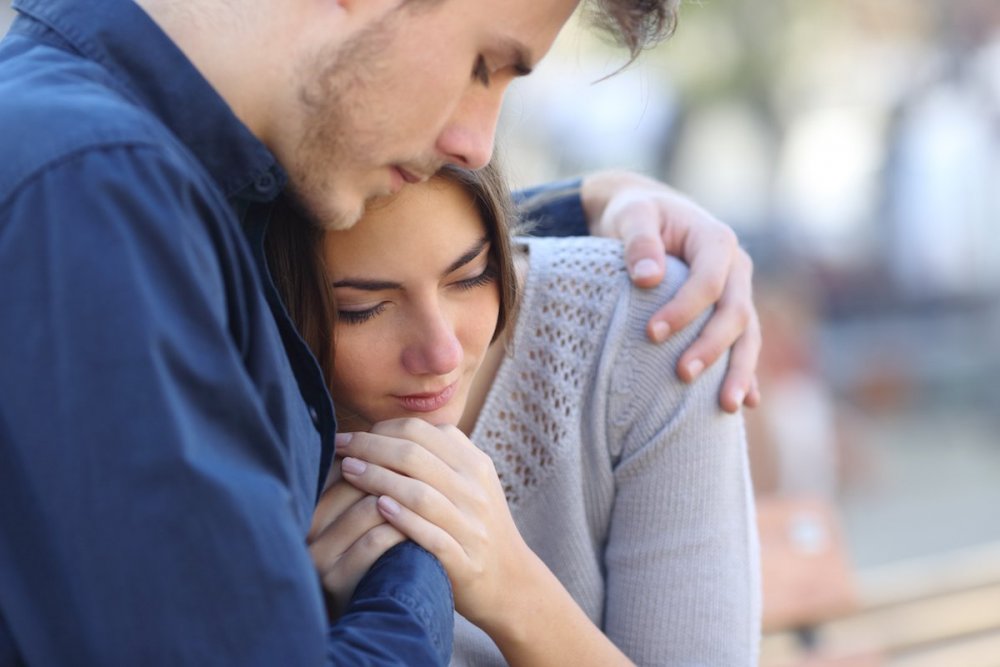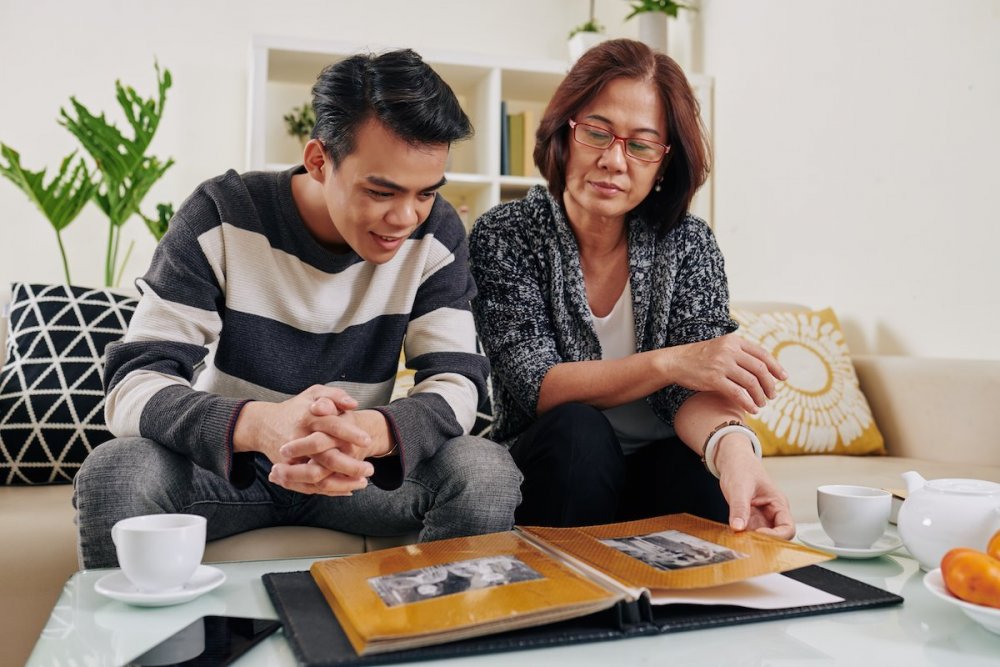The loss of a friend is challenging and will affect you differently depending on your stage of life. From journaling to scrapbooking, Dee Marques offers up five ways to cope with the grief.
Here’s one of the many paradoxes of the human experience: we all experience loss, so we should know how to cope with it. But, instead, for the vast majority of us, losing a loved one is both devastating and traumatic.
The loss of a friend can be a harrowing experience, since it triggers deep feelings of grief. Although there’s no single recipe that can magically help us overcome the pain of loss, there are things that can ease the process.
In this article, I’ll discuss how you can expect to feel when you lose a friend, and I’ll offer some suggestions on how to cope with the loss of a friend.
Losing a friend: possible feelings
Psychologists believe that the experience of loss is so hard to cope with because it temporarily changes the way our brains and bodies work. Here are some common reactions to the loss of a friend:
-
Confusion. When faced with a traumatic event like losing a friend, the brain responds to stress by creating new connections between neurons, or by weakening existing ones. This is usually why people feel confused and mentally exhausted – something that has been described as brain fog.
-
Anger. This is a common reaction that sets in when the initial shock wears off. After losing a friend, you may feel angry at them or at anyone you deem responsible (for example, doctors who couldn’t save them, or an employer if it was a work accident).
-
Guilt. Some people develop a feeling of guilt after the loss of a friend. Here we may see reactions like survivor’s guilt, or blaming yourself for all the times you weren’t there to support your friend. You may also feel trapped by constantly thinking about things you should have or shouldn’t have done.
- Physical pain. Some people also experience loss at physical level, through changes in sleep habits, appetite, or a weakened immune system.
After losing a friend, you may experience one or more of these feelings, at different points in time or as a whirlwind of mixed emotions. Just remember that everyone’s grief process is different.

Seek support from others after losing a friend
Having said that, there are some losses that could especially complicated to handle. For example, losing a family member may feel different from losing a friend. And the reactions described above may be even more intense or prolonged if you lose a friend to suicide. This type of loss is particularly difficult to process due to the stigma that still surrounds suicide.
Losing a friend: timing matters
You should also keep in mind that may react differently, depending on how old you are when facing the loss of a friend.
Losing a friend when you're a child can leave a painful scar in your emotional self. If adults struggle coping with such a traumatic experience, you can imagine how much harder this is for children, who haven’t yet develop the ability to understand concepts like loss or death. Kids may develop feelings of abandonment, withdrawal, or the temporary regression of certain behaviours, like bed wetting or crawling instead of walking.
“Some people develop a feeling of guilt after the loss of a friend. Here we may see reactions like survivor’s guilt, or blaming yourself for all the times you weren’t there to support your friend.”
The death of a friend in mid-life could trigger a crisis, as the early loss of friends can make us re-evaluate our own lives and what we’re doing with them. Moreover, during this stage of life, it’s common to lose friends to friendship break-ups, either due to divorce, relocation, or simply because you’ve chosen different paths in life. This situation can also cause similar feelings of grief.
MORE LIKE THIS:
- How to Help a Grieving Friend: 7 Ways to Be There
- 7 Healing Quotes on Grief to Inspire
- Losing a Parent: 6 Tips For Dealing With Death and Grief
And, as people get older, they begin to realise that they only have a limited amount of time ahead of them, and that this time may be filled with experiences of loss. As a dear neighbour once told me, “when you’re in your 20s, you’re busy attending your friends’ weddings, but when you’re in your 80s, you’re busy attending your friends’ funerals”. A fact of life.
How to cope with losing a friend
Losing a friend can trigger such intense grief that the first reaction may even be denial. Denial is a defence mechanism, which we hold onto believing it will help us avoid the pain. This may work in the short term, but suppressing your feelings isn’t a coping strategy and eventually you may feel overwhelmed.
If you’re experiencing grief after losing a friend, do not try to deny yourself the possibility of processing this experience in the healthiest possible way. Instead of resorting to denial, here are a few things you may find helpful.
1. Celebrate the person you lost
You may have lost a friend, but that doesn’t mean that they're “gone” from your life. Sometimes, you may think it’s easier to stop thinking about the person altogether, hoping that will ease the pain. But it doesn’t always work that way, and in fact, treasuring the memories you shared with your friend can help you overcome the loss.
But that doesn’t mean ruminating about the loss, but rather finding ways to remember and celebrate the person you lost, for example by visiting places they liked on special occasions, reading their favourite books, or taking part in a charity challenge on their behalf.
2. Find a way to express your feelings
When coping with emotionally intense experiences, there is some truth to cliches like “this too shall pass” or “we must get on with it”, but we still need a way to express our feelings instead of dismissing them.
Unfortunately, we aren’t always taught how to express our emotions, whether it's because we were raised in a family where feelings were not discussed or because of certain cultural narratives that equate emotionality with weakness.
Journaling may be helpful in helping you express your emotions and the full extent of your grief in a private and safe way. Keeping a journal after losing a friend can help put some order to your thoughts, celebrate your friend, and discover some coping resources that you didn’t know you have.
3. Make a scrapbook
Creating a scrapbook is an interesting alternative (or a complement) to journaling. Scrapbooks can serve the same function of memorials, but are much more personal. Some studies have found that scrapbooking has a healing power for people who are going through loss and grief, and especially for those who find it hard to express their emotions with words.

Make a scrapbook or look at photos of a lost friend shutterstock/Dragon Images
4. Spend time with others who are also grieving
We all play different roles in our life, so death and loss can affect large numbers of people. The person you have lost may have been a friend to you, but also a father, a spouse or co-worker.
During painful times, you may feel the need to retreat to your inner world, and it’s important to honour that. However, getting together with people who were also close to your friend can be helpful, both for you and for them.
“Studies have found that scrapbooking has a healing power for people who are going through loss and grief, and especially for those who find it hard to express their emotions with words.”
Chances are that others will also be going through a similar grieving process, and you can support each other through it beyond the funeral, when everyone tries to be as supportive as possible. Having said that, keep in mind that people process loss differently, so be ready to give them time and space if needed.
5. Seek help if you need to
When processing the loss of a friend, you may feel discouraged at your own state of mind and wonder how long will it take until the feelings subside. Because everyone’s process is different, there’s no standard answer to that question, but mental health professionals believe that you should seek help if there hasn’t been any improvement after 6 months.
If this is your case, you can start by talking to your GP, who may refer you to a psychologist or to a grief counsellor.
Takeaway: coping with loss is possible
Loss is always hard to handle, and the intense emotions this experience triggers may stay with you for a while. In difficult times like this, you should be patient with yourself and understand that grieving is a process – difficult but possible to navigate.
If you’ve recently lost a friend, try some of the practical steps outlined in this guide and feel free to comment on any other suggestions you may have. •
Main image: shutterstock/Antonio Guillem
happiness.com | The fine art of being: learn, practise, share
Are you a happiness.com member? Join free now and:
■ enjoy our happiness magazine
■ share and support in our happiness forum
Written by Dee Marques
 A social sciences graduate with a keen interest in languages, communication, and personal development strategies. Dee loves exercising, being out in nature, and discovering warm and sunny places where she can escape the winter.
A social sciences graduate with a keen interest in languages, communication, and personal development strategies. Dee loves exercising, being out in nature, and discovering warm and sunny places where she can escape the winter.



Join the conversation
You are posting as a guest. If you have an account, sign in now to post with your account.